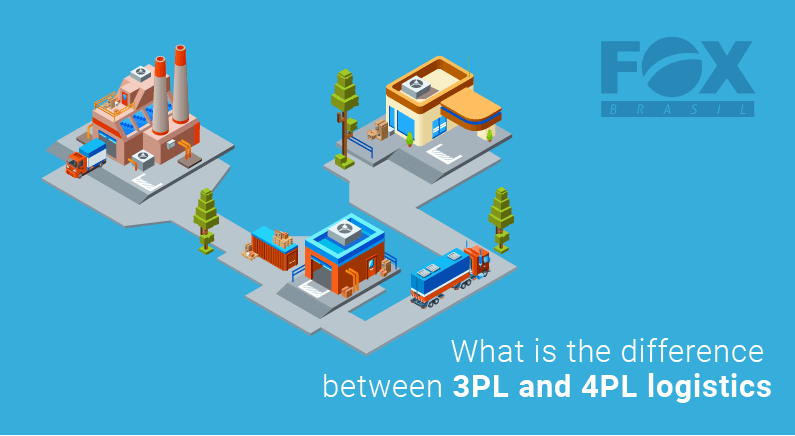What is the difference between 3PL and 4PL logistics

Entenda sobre Logística e Frete
Managing your company’s supply chain activities can be quite a hard task. For this reason, many entrepreneurs choose to partly or entirely delegate their logistics demands to a specialized company. This is where the concepts of 3PL and 4PL logistics arise.
If you are not familiarized with these terms, don’t worry. This article intends to explain them in further detail and tell you the main differences between 3PL and 4PL. Check it out!
What is a 3PL?
3PL, also known as Third Party Logistics, is when a company chooses another one to take responsibility for their logistics operations. In other words, by counting on a 3PL provider, you will be granting the activities associated with your company’s logistics to the care of a team with specialized know-how in performing services within this segment.
Companies that operate as Third Party Logistics (3PL) are responsible for managing the key elements that connect their customers’ supply chain. Therefore, a 3PL provider will execute activities that range from the packaging and transportation of cargoes to storage and inventory control.
What is a 4PL?
4PL or Fourth Party Logistics consists of trusting another company to manage your logistics processes and, on top of that, the overall performance of your business’ supply chain. In this scenario, a 4PL’s role involves actions such as monitoring the company’s internal and external logistics processes, keeping in touch with all the people involved in the supply chain, integrating processes and ensuring each product is successfully delivered to its final destination.
In order for the service to be effective, the 4PL operator needs to have an in-depth understanding of how your company functions. This will allow them to develop transportation and supply chain solutions that not only streamline your processes but also reduce costs and help you to achieve your specific goals and objectives.
Difference between 3PL and 4PL in logistics
The main difference between 3PL and 4PL logistics providers is that the first one acts as a company’s logistics operator and the second one is more like a supply chain manager.
That is, while the 3PL provider is in charge of executing more specific activities, such as picking up and delivering merchandise, the second one operates in a more comprehensive field, developing integrated activities and often appealing to new technologies for the management of vehicles, warehouses, and all supply chain processes.
Among the advantages of hiring the services of a 3PL or 4PL provider are:
- Adding value and knowledge to the organization;
- Identifying and correcting operational errors, from simple to severe;
- Preventing unnecessary expenses with storage, demurrage and so on;
- Following the pre-determined deadlines without prejudice to either party;
- Guaranteeing successful operations.
We hope this post was useful to you. And if you want to see more interesting content about logistics and freight forwarding, click here to see tips to make your import and export processes easier.
We are FOX Brasil – The most reliable Brazilian freight forwarder & logistics solutions provider.
